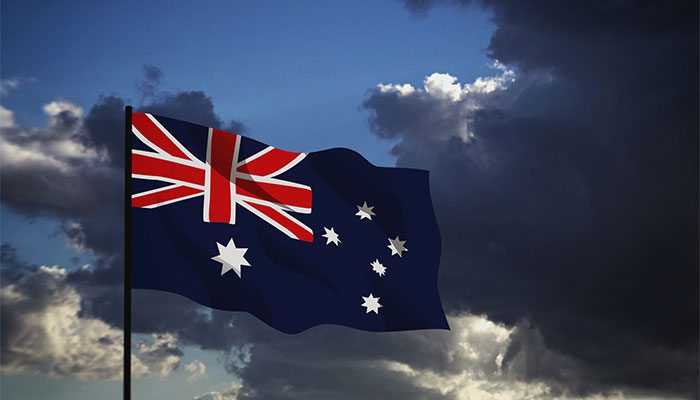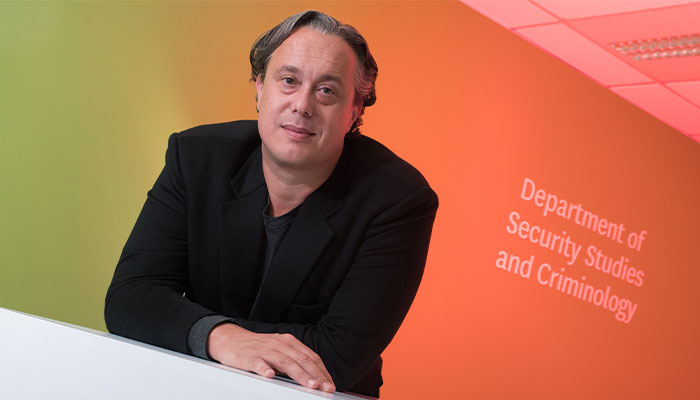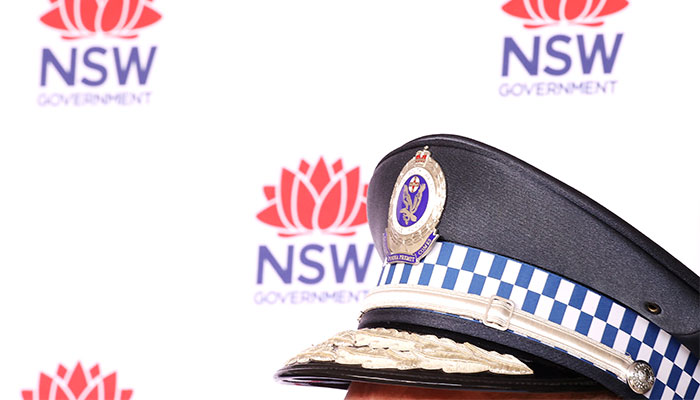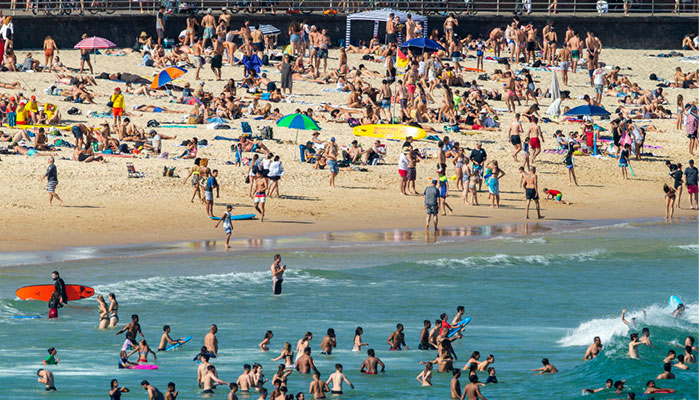The chief of ASIO Mike Burgess had a warning for Australia earlier this year: the extreme right-wing threat is real and it is growing, and in suburbs around Australia, small cells meet regularly “to salute Nazi flags, inspect weapons, train in combat and share their hateful ideology”.

Dark forces: Australia has seen a growth in far-right groups in the past five years, says Dr Julian Droogan.
The alert in Burgess’s annual threat assessment came almost a year after Australian white supremacist Brenton Tarrant in March 2019 killed 51 people at two Christchurch mosques in New Zealand’s worst mass shooting.
The 29-year-old from Grafton, NSW, has pleaded guilty to 51 counts of murder, 40 of attempted murder, and one count of terrorism. His sentencing hearing begins on August 24.
Dr Julian Droogan, Senior Lecturer in the Department of Security Studies and Criminology at Macquarie University, says Australia has seen a growth in far-right groups and narratives in the past five years in particular.
It will all be tied generally into conspiracy theories about global elites run by Jews and so on; anti-semitism is rife.
Many groups emerged amid the Islamic State crisis with explicit anti-Islamic agendas that masked a deeper, white supremacist agenda, Droogan says.
“All terror groups have crisis narratives – they feel that something is under threat, and in the case of the far right that is generally what they see as Anglo-Saxon white values or identity,” Droogan says.
“They will claim it is under threat from a series of different forces – Muslims, multiculturalism, immigration, globalisation – and it will all be tied generally into conspiracy theories about global elites run by Jews and so on; anti-semitism is rife.”
As with most violent extremist movements, its members are typically young, male and idealistic: “They always think they are going to make the world a better place, as appalling as that sounds,” Droogan says.
Inside the echo chamber
What we call the far right today has existed since the early 20th century, and has included the growth of fascism at particular times and places – in Europe in the 1930s and 1940s in particular.
Today, it is shaped by large, very 21st-century forces, Droogan says.
“Social media and the internet create echo chambers where people become not only more extreme within those chambers, but also just find it easier to be in an environment where their biases are continually confirmed and they are not challenged with alternative perspectives, creating an environment where extremisms are more able to flourish,” he says.
ASIO boss Mike Burgess pointed to the proliferation of online forums such as The Base which share and promote extremist right-wing ideologies “and encourage and justify acts of extreme violence”.
What they are quite good at doing is shifting discourse and wider social and political norms towards extremes that are fed by fear.
We are also living in generally troubled times, with increasing geopolitical, economic, environmental and health instability – the sort of instability, as research repeatedly suggests, Droogan says, that creates crisis and catastrophising narratives, which feed into conspiracy theories where adherents try to solve complex problems in simplistic ways, and look for people to blame.
“All of this can tie into the creation of extremisms, because when there is this sense of crisis, there is a corresponding sense among some people that not only is an extreme solution needed, but it needs to be acted on the ground now. There is no time to wait.”
Australia's powerful weapon
Violent Islamic extremism remains ASIO’s principal terrorism concern, Burgess said, and any right wing extremist-inspired attack in Australia would likely be ‘low capabaility’ – that is, employing a knife, gun or vehicle attack. However, more sophisticated attacks were also possible, he said.

Country strong: Dr Julian Droogan says the cohesiveness and plurality of Australian society is its best defence against extremism.
Droogan warns another, more insidious danger of fanatical movements is that they can shift the political narrative towards extremist ideas being normalised.
“Australians are not dying at the hands of violent extremists on a regular basis, nor are thousands of young Australians flocking to join these groups, and that is really, really good,” Droogan says. “It is a significant problem, but not as big a problem as many others we have – domestic violence kills far more people than terrorists ever will.
“No matter how powerful a terror organisation is, they are very unlikely to be able to topple a state, but what they are quite good at doing is shifting discourse and wider social and political norms towards extremes that are fed by fear.
“The ironic thing is we spend so much money on trying to apprehend them and lock them up, and in some cases in foreign conflicts literally to kill them, but despite that they can still win, because they can still shift the narrative towards what they want it to be.”
But Australia is well-placed to fight that shift, Droogan believes, with its most powerful weapon being the nature of Australian society itself.
“We have demonstrated, for all of our problems, we are a generally cohesive, successful, working society, and we can say that NSW embodies in particular a successful, pluralistic, multicultural society – and that is the strongest counter-narrative you can have towards these forms of extremism.”
Dr Julian Droogan is Senior Lecturer in the Department of Security Studies and Criminology.



